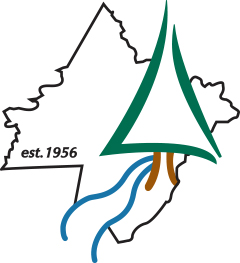
Ways to Help Your Lake
In the summer of 2019, to help residents protect local water resources, PCCD hosted a virtual series titled "How your Backyard Activities Affect Your Lake."
Each program has information essential for home and property owners in Pike County. The decisions regarding clean water made by each individual within a watershed can have a major impact on all other residents. We are all connected to each other through our water source, so it is up to every individual to take care of this shared resource.
The recording of these webinars are below, and can also be found on our YouTube page.
Webinar 1: Ways to Help your Lake Stay Healthy
This first webinar introduces you to the basics on watersheds and non-point source pollution, presented by Devan George, PCCD Communications Coordinator. Then Ellen Enslin CPESC, senior resource conservationist, elaborates on the ways that we here at the District can help you create less non-point source pollutants.
Webinar 2: Homeowner Tips to Protect Clean Water
In this incredibly handy webinar, Marianna Quartararo, resource conservationist, leads you through some tips and tricks to protect the water in your watershed. Marianna covers smaller-scale changes you can make to your home and property for stormwater and non-point source pollution management.
Webinar 3: Getting to Know Your Drinking Water
Peter Wulfhorst, Penn State Extension Educator, joins us to teach where our water comes from, well installation and maintenance, and potential well issues. This is the perfect webinar for homeowners and anyone working with a personal drinking water well.

Invasive species cost the US over 120 billion dollars each year. These species impact tourism, transportation, resource use, water withdrawals and much more.
Never move animals or plants from one area to another. Don’t move firewood, soil, or other items that might contain insects or microbes.
